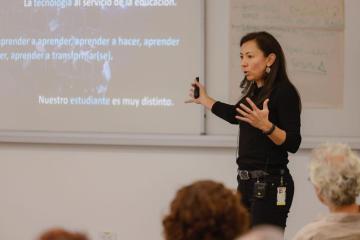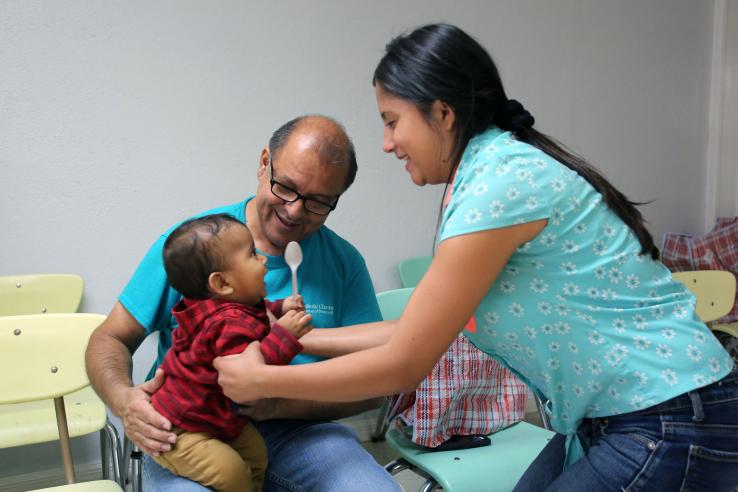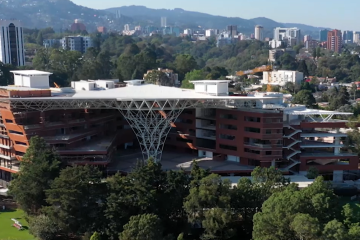
Fostering early child development to alleviate poverty in Guatemala

Children’s early years contain a universe full of possibilities and potential to improve their life trajectories. During this period, millions of connections are formed in the brain. Before turning five years old, humans shape their cognitive and psychosocial development potential and form the foundation for future learning that determines other outcomes later in life. Evidence on early child development (ECD) suggests that programs targeted to children and caregivers can have positive impacts on long-term human capital development.
Although the relevance of ECD is well recognized, and access to quality early childhood development, care, and pre-primary education is one of the United Nation’s Sustainable Development Goals, the use of evidence and evaluations of innovative programs around ECD in Latin America and the Caribbean (LAC) is still in progress. According to a 2013 study of ECD services in the region, various countries have prioritized it in their public policy agendas. However, the challenges persisted as the programs presented notable differences in quality.
In Guatemala—one of the countries with the world's highest stunting rates and low early childhood education enrollment—several organizations and government institutions increasingly recognize the importance of improving ECD and have accumulated relevant key lessons on ECD. With all this in mind, J-PAL LAC and Universidad del Valle de Guatemala (UVG), as part of their nascent partnership to promote evidence-informed decision-making, are working together to promote the use and generation of evidence around ECD in public policies and social programs in the country.
Boosting early childhood development in Guatemala
To catalyze the use of evidence and evaluations of innovative ECD programs, we created “Programa de Sondeo y Arranque” or PROSA, which means “screening and launching program” in Spanish. This project will map programs related to ECD—ranging from early stimulation to nutrition and health interventions—and evaluate their joint impact on the lives of children 0–5 years of age.
PROSA will focus on strengthening research and existing ECD programs in Guatemala and eventually could reach other Central American countries like El Salvador and Honduras. With this in mind, we will map interventions targeting infants, caregivers, and communities and identify and propose cross-cutting interventions to help caregivers overcome barriers that prevent them from investing in ECD. The main research topics will be nutrition, preventive health, home environment, stimulation, and early childhood education. In addition, we will consider cash transfers and other cross-cutting tools that might help caregivers overcome barriers that prevent them from investing more resources and time in children. In parallel, we will collaborate with some organizations working on innovative interventions around ECD to promote evidence use and co-creation of new evidence in Guatemala.
What do we expect?
The project has an immediate plan for the next two years which includes:
- Reviewing existing evidence and identifying research gaps and relevant research questions
- Sharing relevant evidence with interested ECD organizations and implementing training sessions on impact evaluation methods in order to promote a culture of use of scientific evidence
- Developing partnerships with organizations working on ECD and supporting them to foster evidence use for program design.
- Funding early studies and activities as part of promising partnerships
The project also has long-term ambitions to expand efforts past the two-year immediate plan which includes furthering and funding studies and activities, collaborating with government institutions, and expanding into other relevant thematics.
Work with PROSA
PROSA invites government institutions, NGOs, and other organizations working on ECD to reach out and share their interventions and lessons learned in order to work together to inform future evidence and policies. For more information visit PROSA's website or email Constanza Alarcón, policy manager at J-PAL, at [email protected].
Interested in learning more about PROSA? Check out J-PAL LAC's upcoming webinar:
Promoviendo el Desarrollo Infantil Temprano en Guatemala: ¿Cómo participar en el programa PROSA? – August 30 from 8:00 to 9:00 am CST (This event will be held in Spanish).
Related Content

Affiliate Spotlight: Raquel Bernal on early childhood education and the importance of lifelong learning

Leveraging technology to improve child-caregiver interactions at scale


